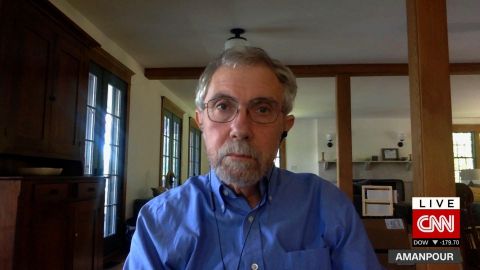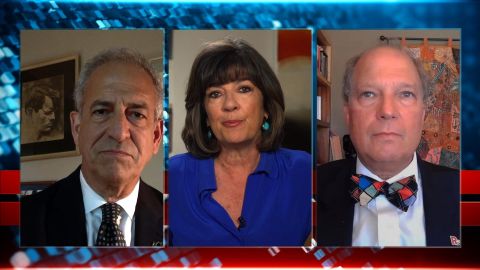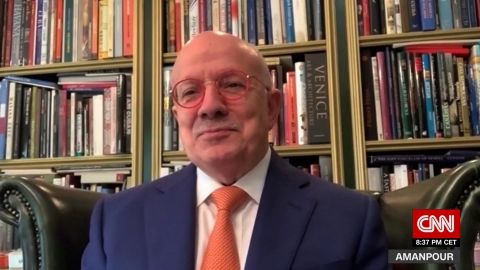Read Transcript EXPAND
PAUL KRUGMAN, OPINION COLUMNIST; THE NEW YORK TIMES: What we’ve learned, what a lot of us were trying to tell people, but anyway is now very clear is that there is no economic recovery as long as the pandemic is out of control. You cannot — it doesn’t even matter what governors say. You can try to reopen, whatever, but as long as the virus is still spreading freely, then very quickly, you’re forced to close down again, or even if you say it’s OK to go to restaurants, people won’t, because they’re going to be afraid of, you know, dying. And because the United States failed, because we blew it, because we took our original success, partial success, in reducing infections and threw it away with carelessness, now we’re in a situation where we have an indefinite period of a very depressed economy. Basically, I think we’re almost certainly going to meet the sort of informal definition of a depression, which is a year or more of 10-plus percent unemployment.
CHRISTIANE AMANPOUR: Wow. I was actually going to ask you whether it would stay at a terrible recession or whether you felt that it could head into a depression, which is, as you’ve technically pointed out what it is. So, that is not good news for people to hear right now. Are you surprised? Obviously, you talk about, you know, you warned, others have warned that unless you get the pandemic under control, you’re not going to have this famous V-shaped recovery. The time was to try to build the public health and, you know, social circumstances that should have allowed some kind of safer recovery. But now, you’re seeing, what you’ve just pointed out in terms of virus and infections, but also what we mentioned, you know, the economy contracting, for the first time since records have been taken, by nearly a third. Is that what leads you to think of a potential depression?
KRUGMAN: No. Actually — so, by the way, really, you know, these annualized rates, that’s become a real pistol. The company actually contracted by about 10 percent, which is, you know, around 40 percent at an annual rate. But those are old. I mean, we’re living on COVID time. Things happen very, very fast now. So, a number on the economy in the second quarter is really basically where we were in May, and May is practically a lifetime ago in terms of the pace at which events are happening. Where we are right now is that we had a month and a half when the economy seemed to be bouncing back, and then, you know, we had the second wave and deaths started to rise, and we started retrenching. And so, where we are right now is that we had an abortive takeoff. We had the beginnings. It started to look like a V-shaped recovery, but because we hadn’t controlled the virus, it failed, and where we are now is really, really grim. It’s not clear exactly what it will take to get us actually moving economically, and it’s — we’re in a very bad place and we appear to be stuck in it.
About This Episode EXPAND
Chrisitane speaks with Nobel Prize-winning economist Paul Krugman about the state of the U.S. economy. She also speaks with Russ Feingold and Paul Rosenzweig about Attorney General William Barr’s testimony earlier this week. Walter Isaacson speaks with former Miami Dade college president Eduardo Padrón about why flexibility is needed to ensure every student can get an education.
LEARN MORE


